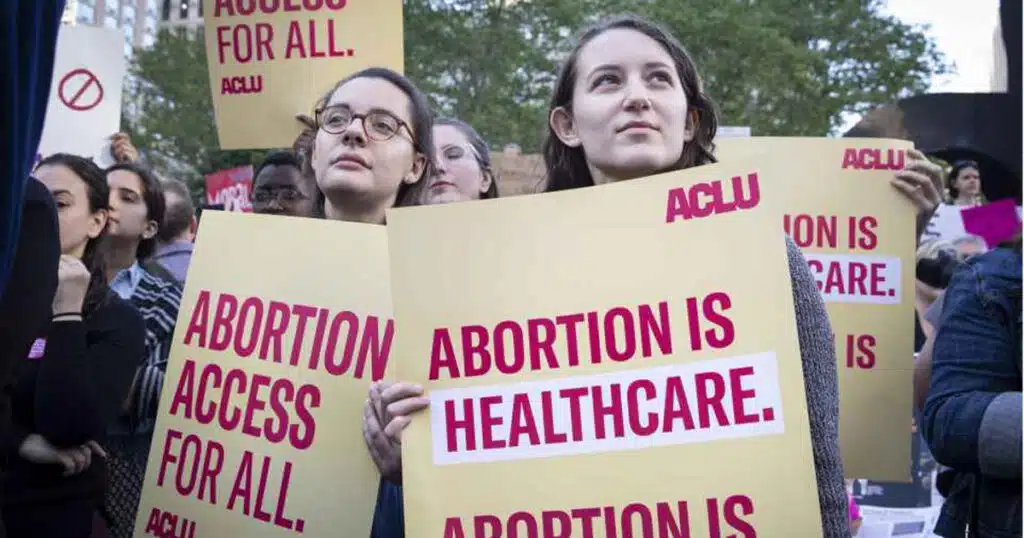
Abortion Now To Be Codified in California’s State Constitution
California voters on Tuesday overwhelmingly supported Proposition 1, a measure placed on the ballot in the aftermath of the U.S. Supreme Court’s decision to overturn Roe vs. Wade — and which will now codify the state’s progressive abortion protections in its constitution.
With the initiative’s passage, the state constitution will be amended to expressly guarantee a person’s “fundamental right to choose to have an abortion and their fundamental right to choose or refuse contraceptives.”
California’s Democratic-controlled Legislature placed Proposition 1 before voters, explaining the effort was necessary to make sure state courts or politicians are not able to undermine reproductive rights in the future without voter approval.
“Today we sent a loud clear message to those who think they can control our bodies,” said Democrat Senate President Pro Tem Toni Atkins, who authored the bill that placed Proposition 1 on the ballot. “In California, we will not go backwards.”
Polling leading up to the election showed strong public support for Proposition 1. It’s believed the convictions many voters held on the issue of abortion access were instrumental in mobilizing reluctant voters, an added bonus for Democrats who placed the measure on the ballot, as well as their congressional colleagues.
Gov. Gavin Newsom, who contributed $3.4 million from his gubernatorial reelection campaign to support the proposition, was featured in ads promoting the amendment — an effort that was seen to help the campaign for the proposition, and also his own effort to win a second term.
“The idea that we are proactively codifying statute — that we are going on the offense — is something from my perspective to celebrate and to highlight and not just dial-in and take for granted,” Newsom told POLITICO in a recent story.
Throughout the midterm election cycle, threats to abortion rights have been one of the biggest themes seized on by Democrats running for office nationwide.
On Election Night, an opposition campaign spokesperson conceded defeat but promised the anti-abortion coalition that fought the proposition would continue to fight against what critics argue is the measure’s overly broad language.
“To us, this was only the first battle in the fight to protect the people of California from extreme and costly policies that fail to reflect the values held by most Californians,” said Catherine Hadro, a spokesperson for the coalition opposed to Proposition 1.
Representatives of the opposition campaign argued Proposition 1 included broad language that would override California’s laws limiting late-term abortions and allow the procedure up until a child’s birth for any reason.
However, constitutional law experts dismissed those concerns, saying state laws that address when exactly abortions can be performed will not be modified and remain in effect.
California law allows a person to have an abortion until the point a doctor determines “there is a reasonable likelihood of the fetus’s sustained survival outside the uterus without the application of extraordinary medical measures” or if the procedure is necessary in order to “protect the life or health of the woman.” Physicians generally consider a fetus viable at 24 weeks, but that determination ultimately is based on an individual pregnancy.



